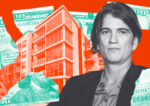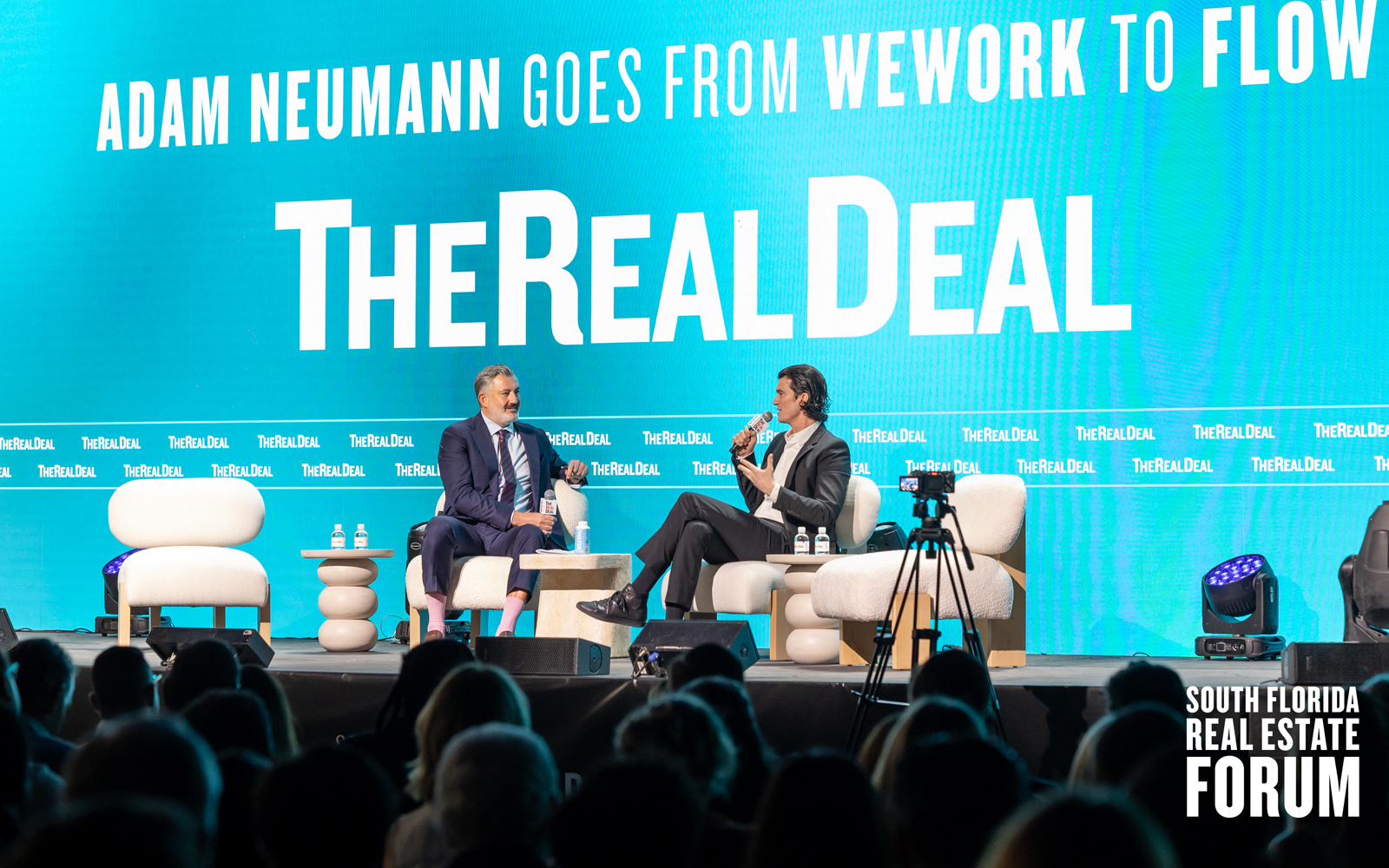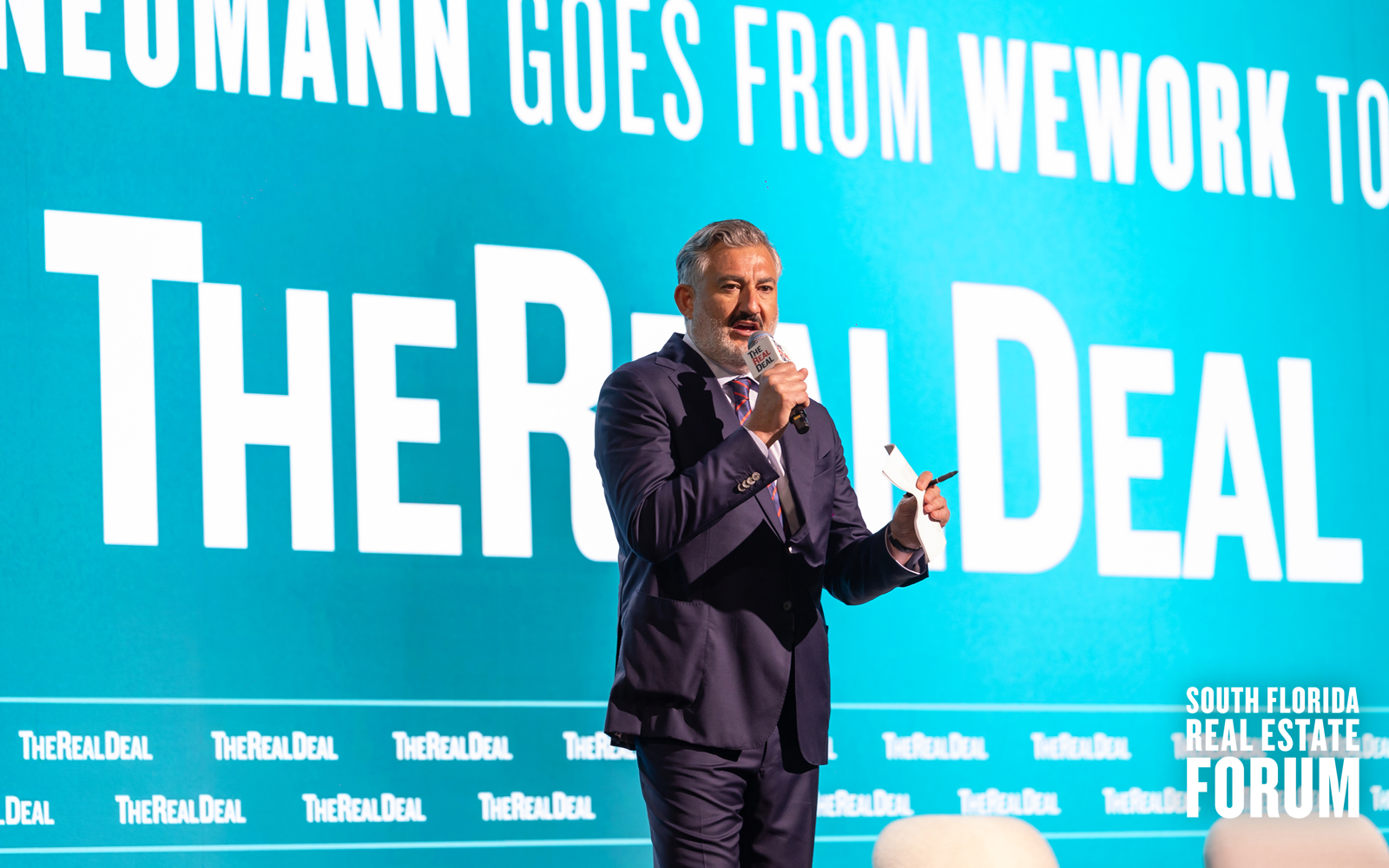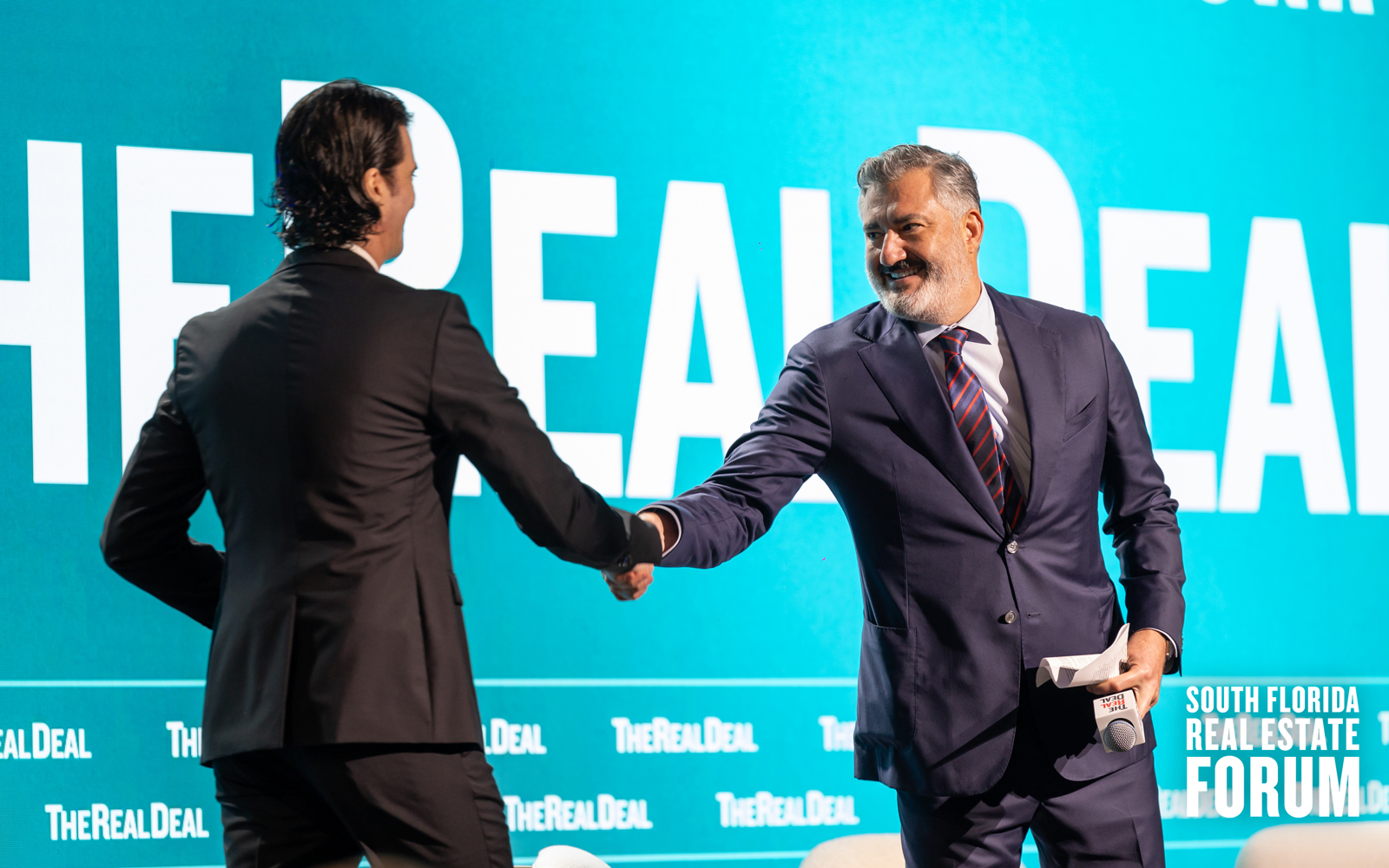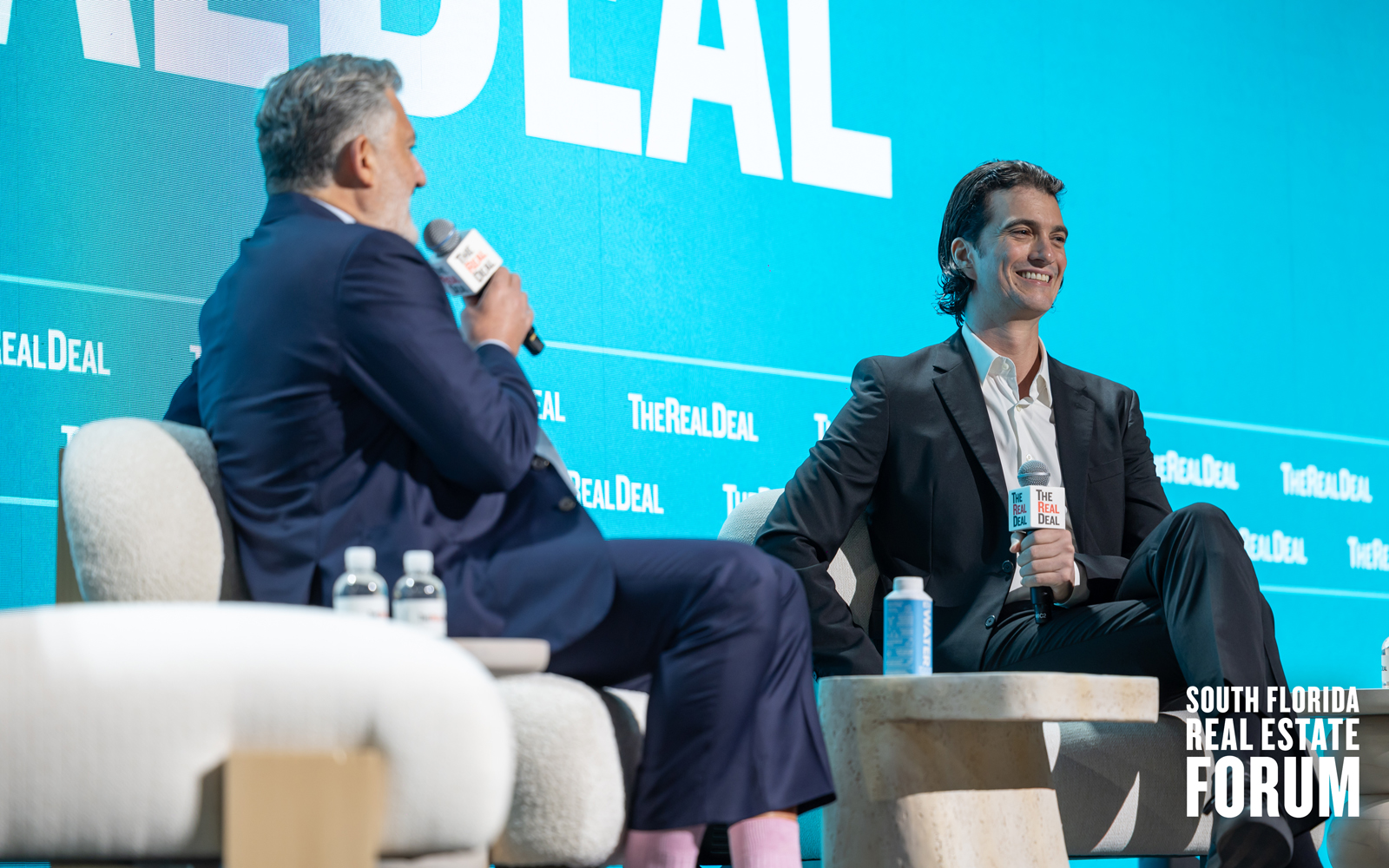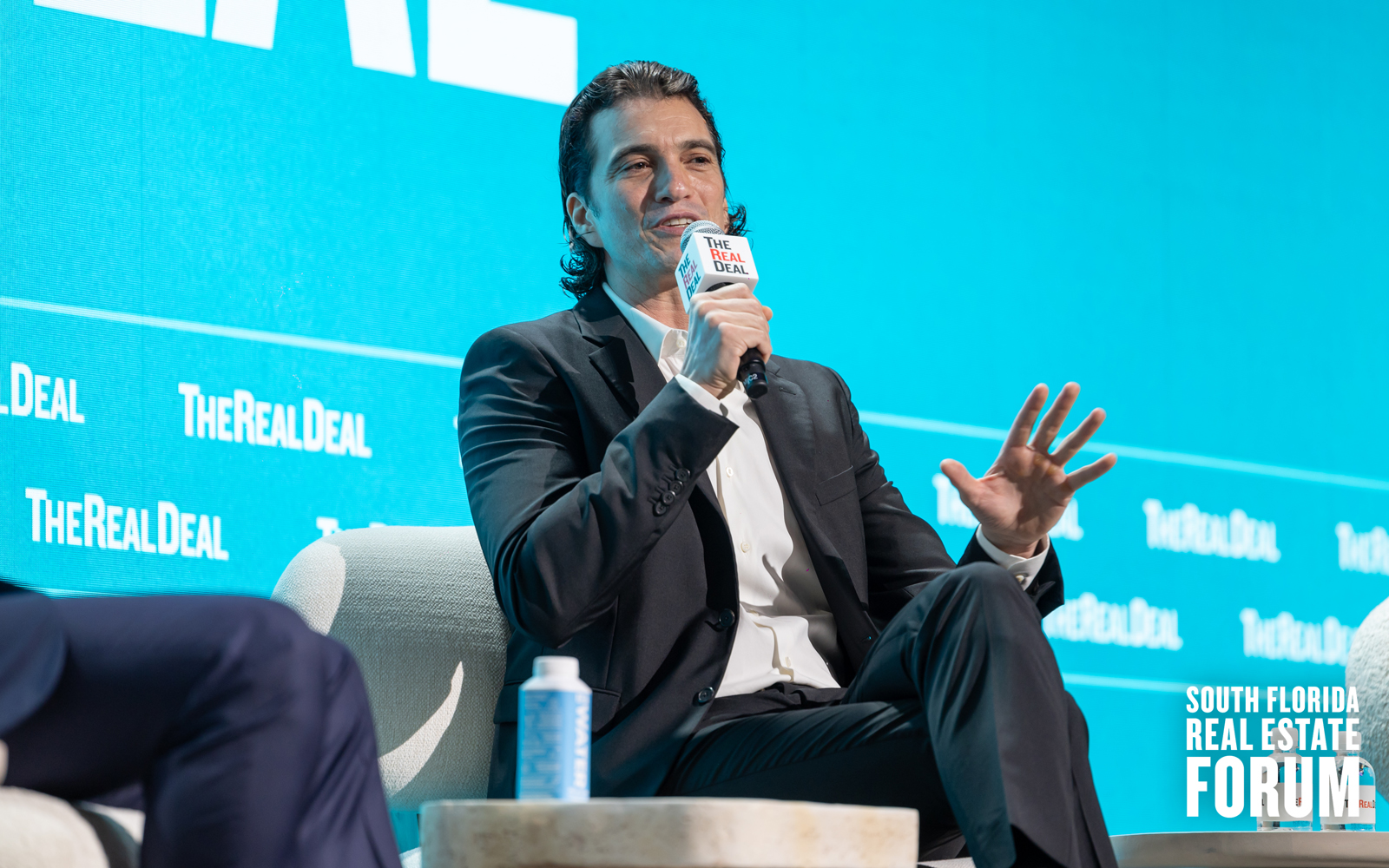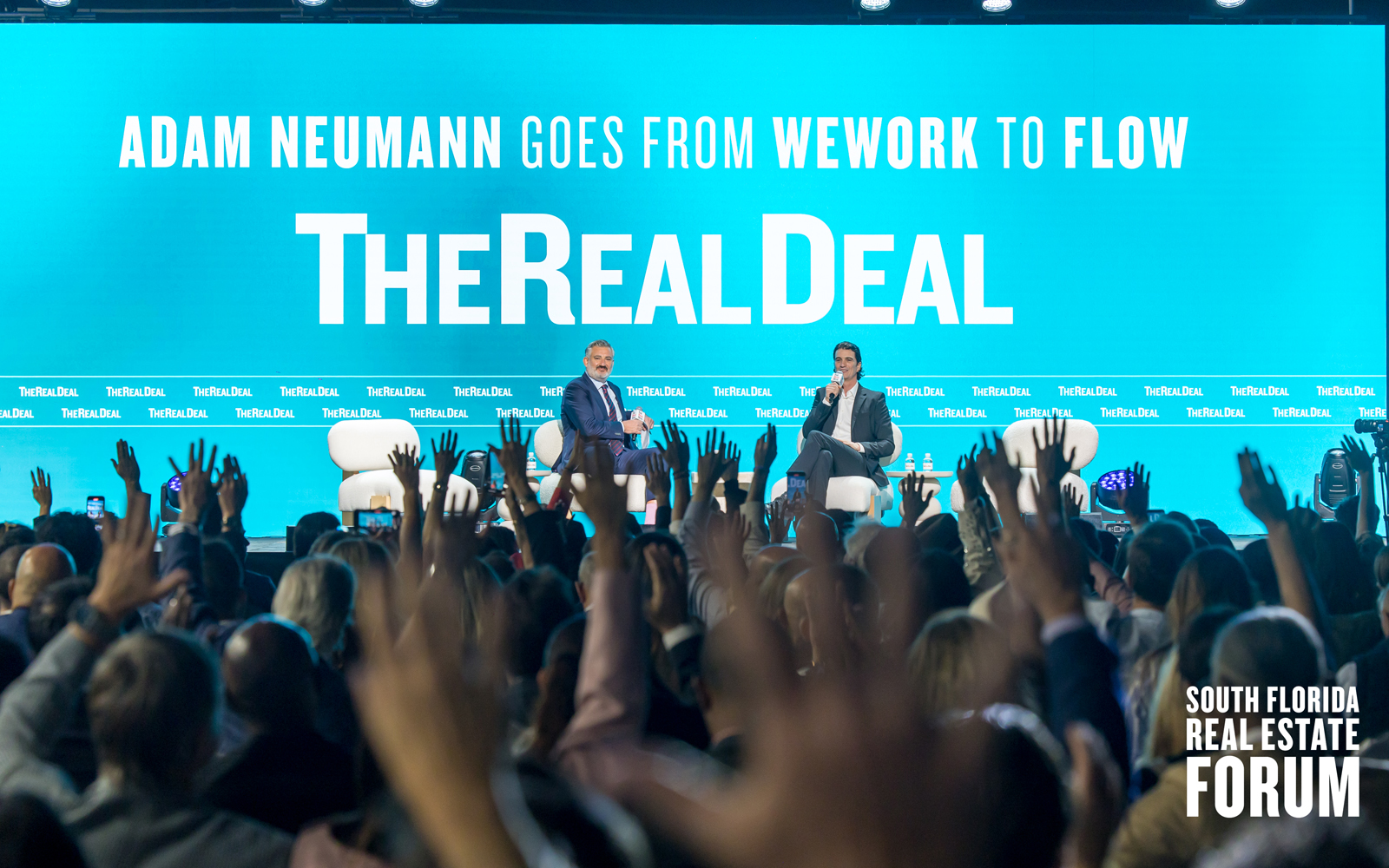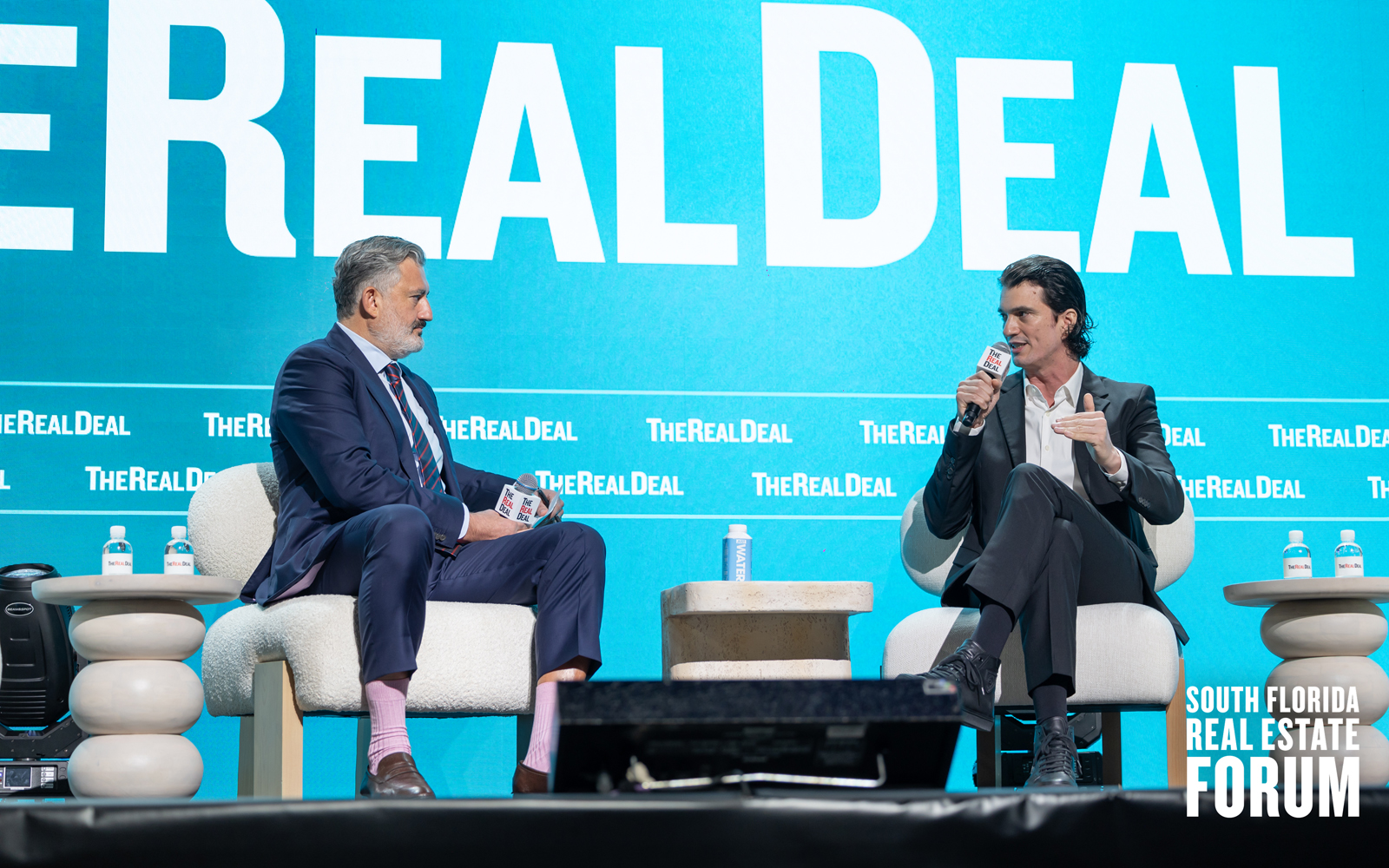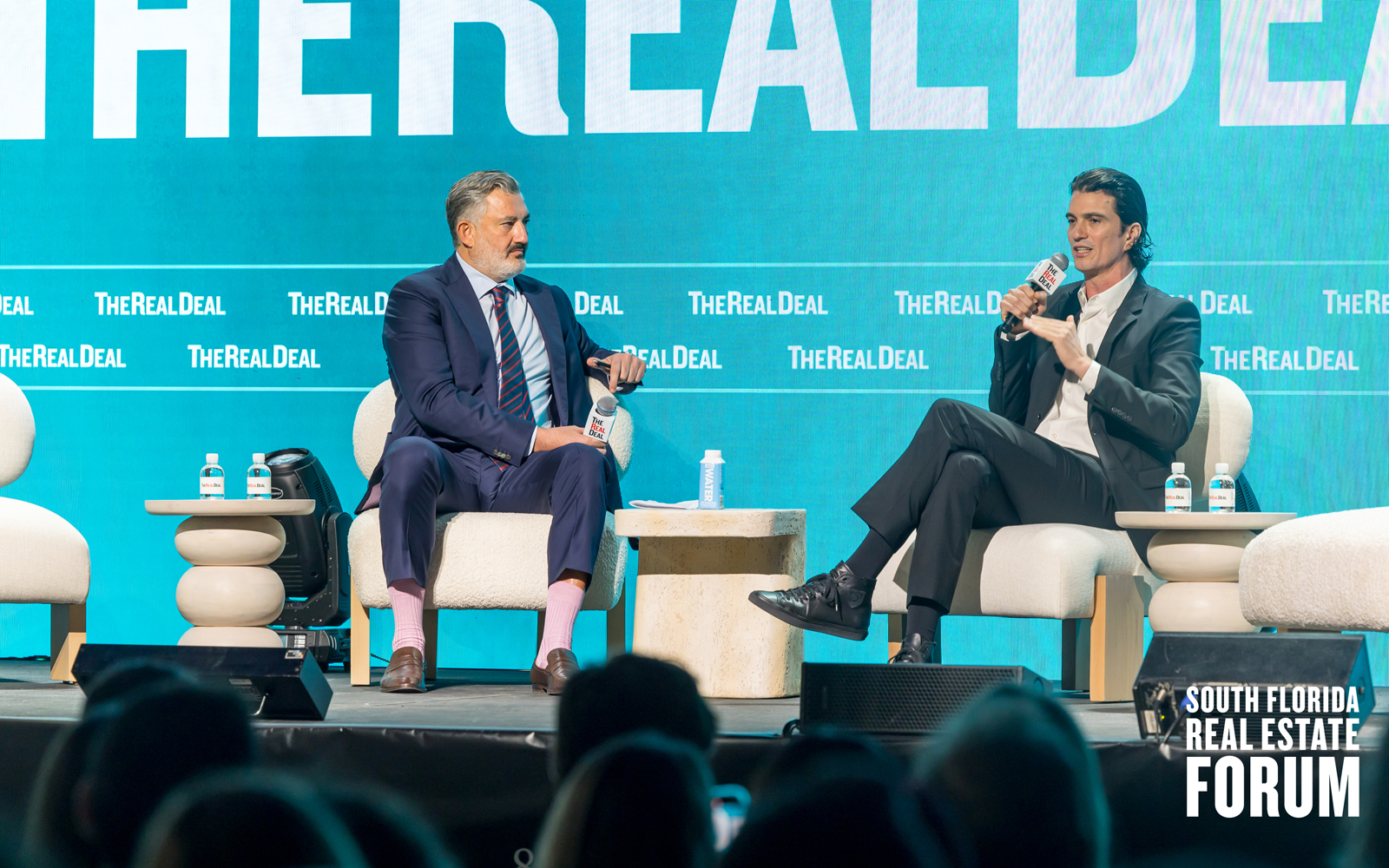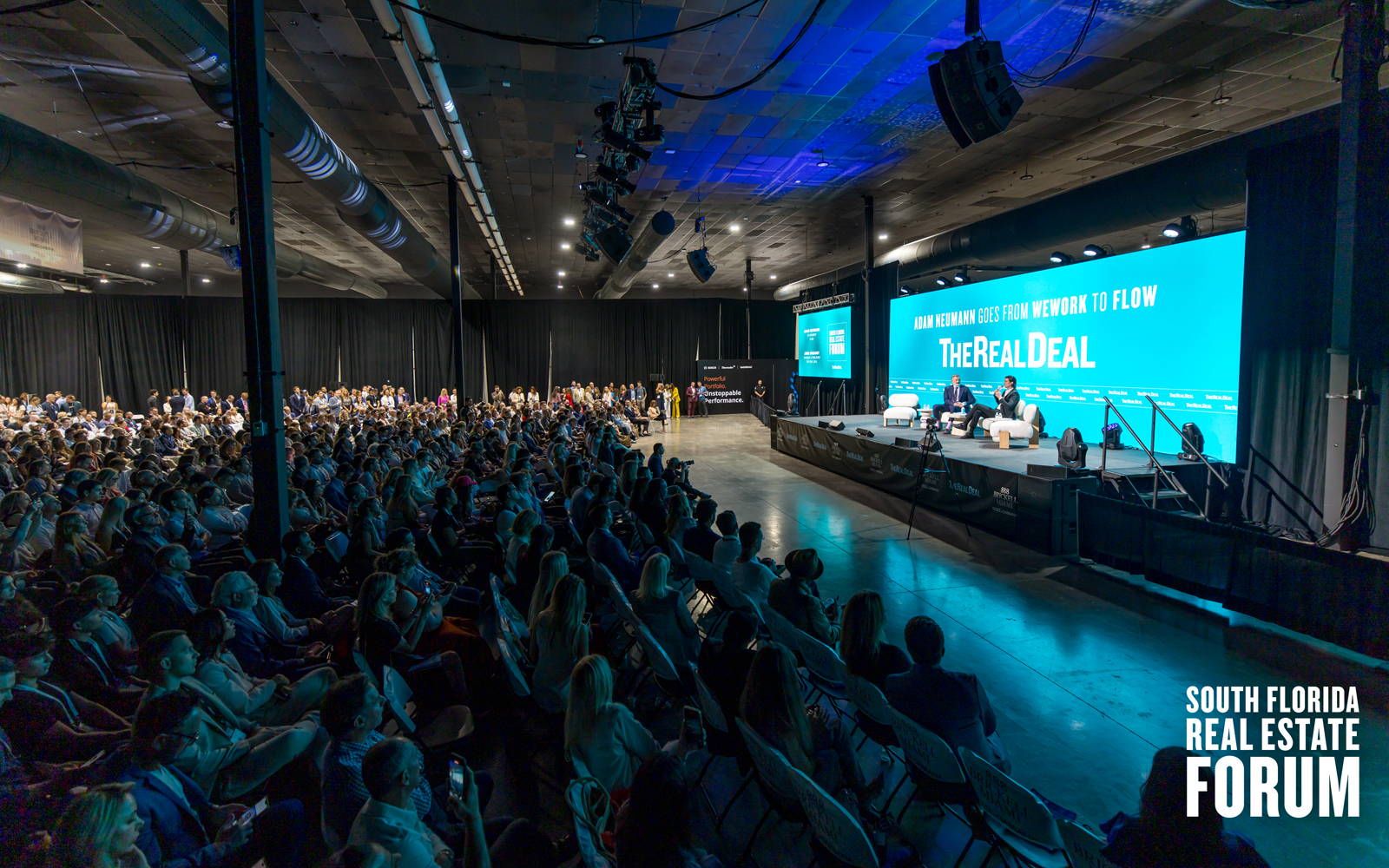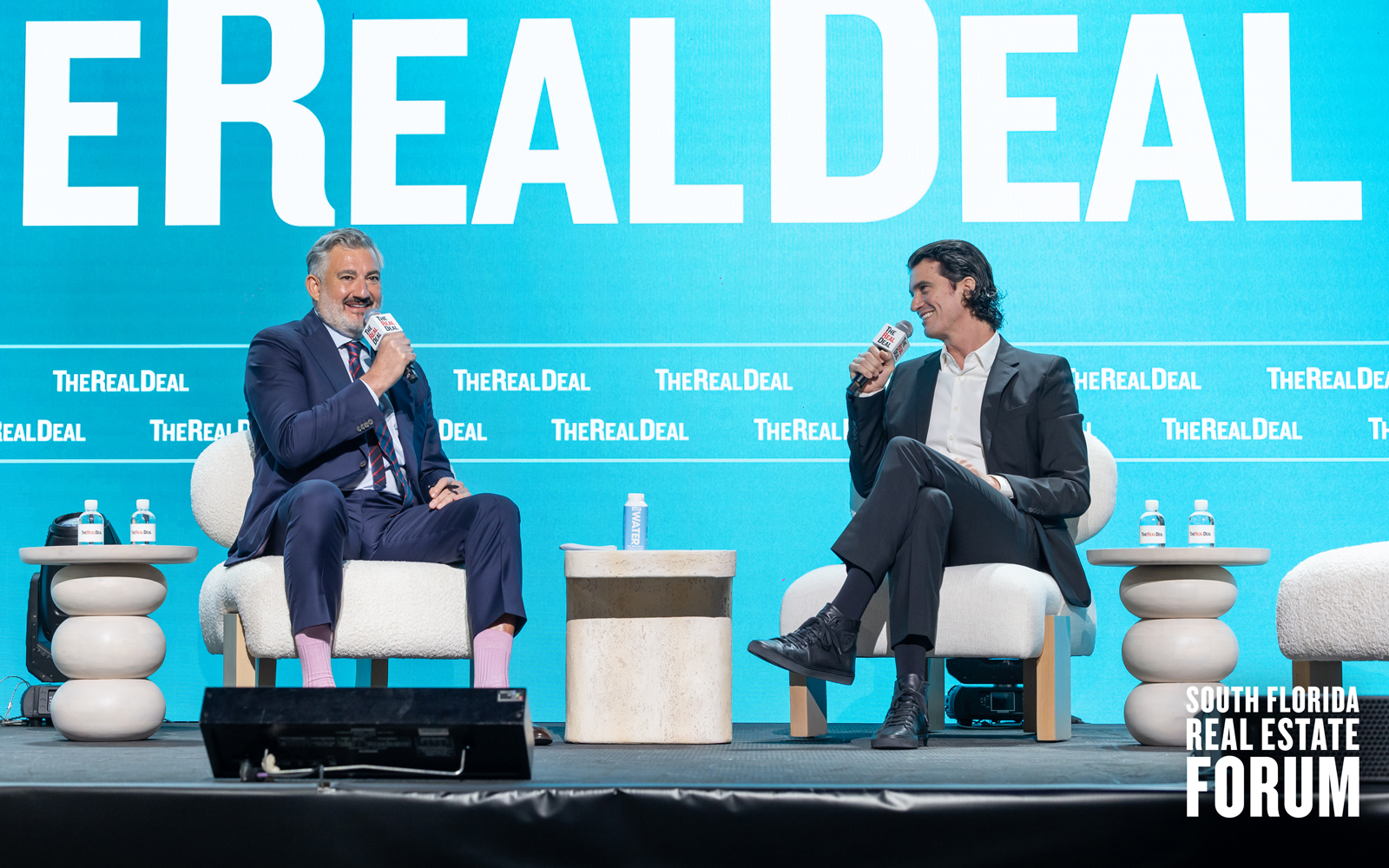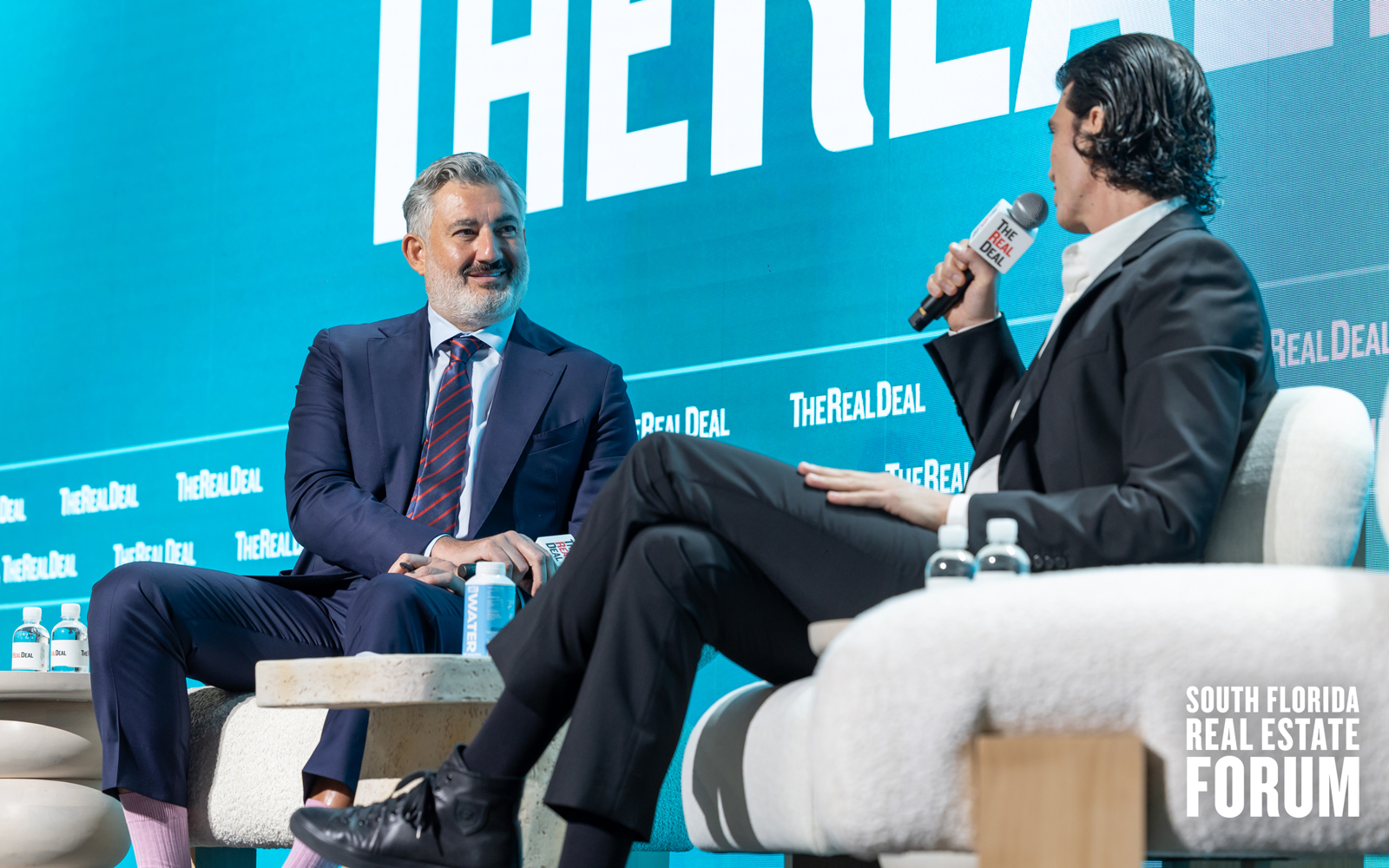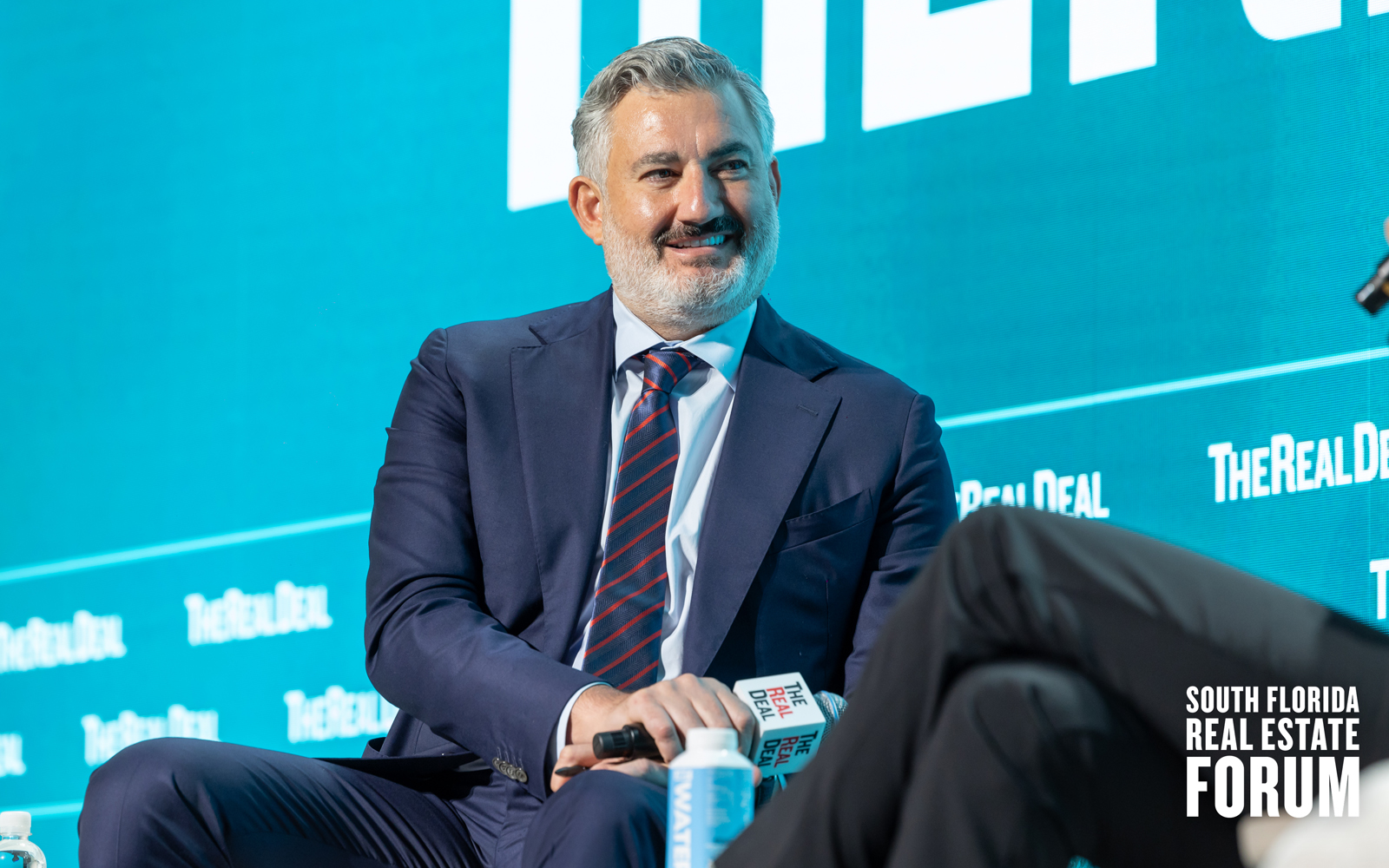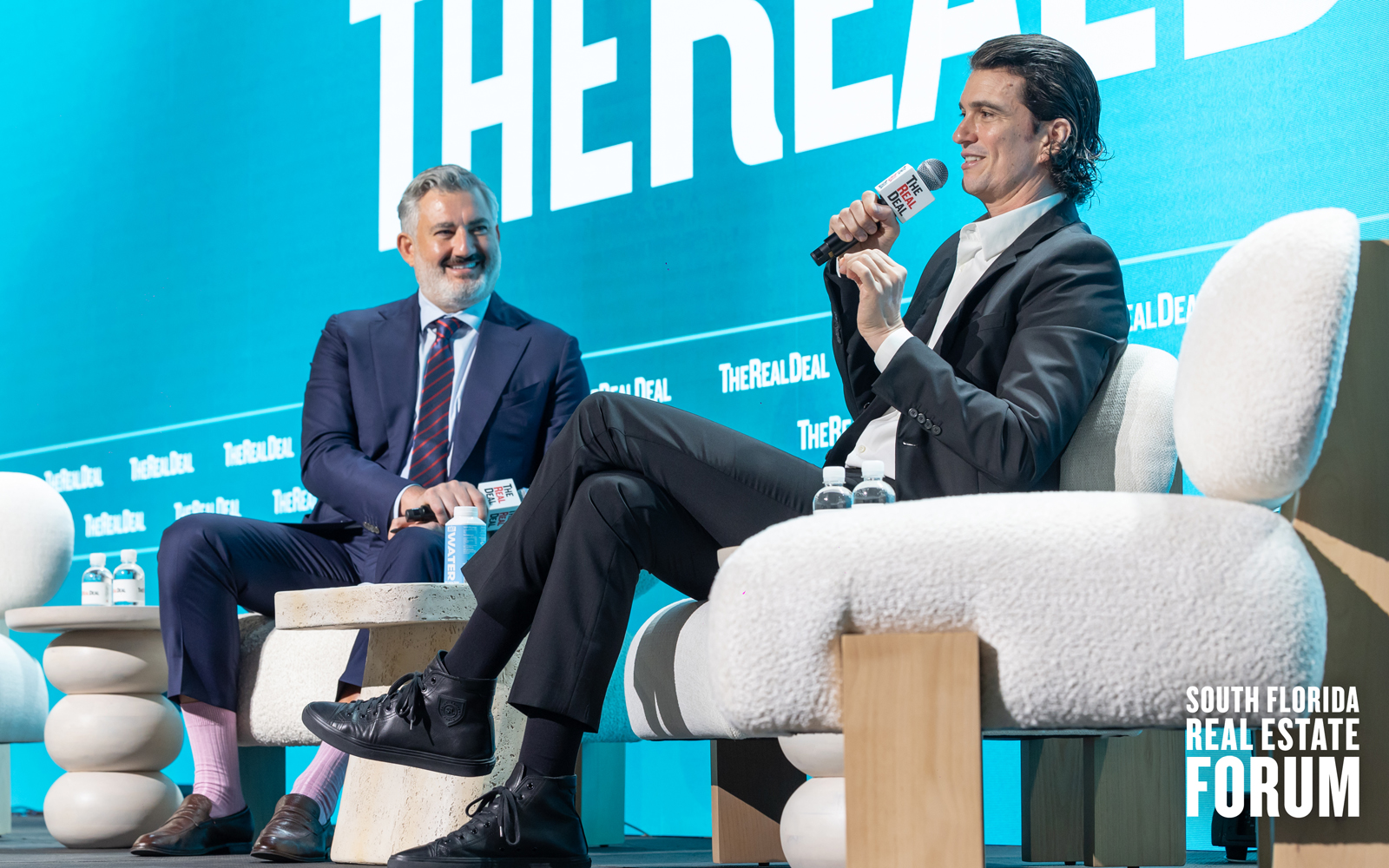It’s been two years since Adam Neumann launched his residential venture Flow and over six months since its first properties went live.
And yet the haziness around how Flow will “revolutionize” community-based living — as Neumann promised — is as thick as ever.
At The Real Deal South Florida Real Estate Forum, founder and publisher Amir Korangy pressed Neumann to explain.
“I visit a lot of new developments… you have the yoga studios, you have the gyms, you have the public spaces you can use,” Korangy said. “I really need to understand how Flow House is exactly different from them.”
Neumann stuck to his script. “It’s a feeling,” he said, and went on to tout the community perks such as wellness classes hosted primarily by residents. (Read the entire transcript of the interview here.}
Previously he had told CoStar, “We learned while building Flow over the last two years that the exact same needs faced by renters are also faced by owners in terms of lack of community and lack of connectivity.”
Before Neumann nabbed $350 million from venture capital firm Andreessen Horowitz in 2022 to formally launch Flow, the startup picked up six buildings. It has opened two: rentals in the Miami Worldcenter development and Fort Lauderdale.
At TRD’s Forum, Neumann said his team knows the concept is working because “people are in our buildings” and the community concept is driving revenue growth.
“[Net operating income] is growing substantially compared to [other buildings],” he added.
Flow’s site shows both rental buildings are offering one month’s free rent. A spokesperson says occupancy is now 92 percent at Flow Fort Lauderdale, which has 799 units, and 94 percent at 444-unit Flow Miami, also known as the Caoba rental tower.
Earlier this year, TRD reported that more money was needed to stem bleeding at two Nashville properties bought by Neumann’s family firm Nazare Capital and later sold to a joint venture with YieldStreet. The crowdfunding firm raised the money for its portion of the JV, in which Flow holds a minority stake.
Flow House, meanwhile, marks a shift in strategy for the startup: The building was initially conceived as another rental development to neighbor Flow Miami. But Flow converted the building to condos as rent growth in Miami ebbed. Neumann said his team believed the demand it saw for its community-oriented rentals could also apply to condos.
Neumann reiterated his commitment to Miami at the forum but showed significant love for Saudi capital Riyadh where Flow will develop three residential properties.
“Why skip from Miami and go all the way to Riyadh?” Korangy asked.
Neumann took an opportunity to engage the crowd: “Have you been there?” A smattering of hands cropped up.
“I’m going to tell you guys a little bit about Riyadh, Saudi Arabia,” he continued, noting the country’s young population (63 percent of Saudis are under 30, Reuters reported) and that Crown Prince Mohammed bin Salman Al Saud has a “clear vision” of urbanization and community.
“We realized that this concept, as good as it is in the U.S., does not exist in Riyadh,” Neumann said. “The broader market fit we thought was going to be phenomenal.”
Read more


